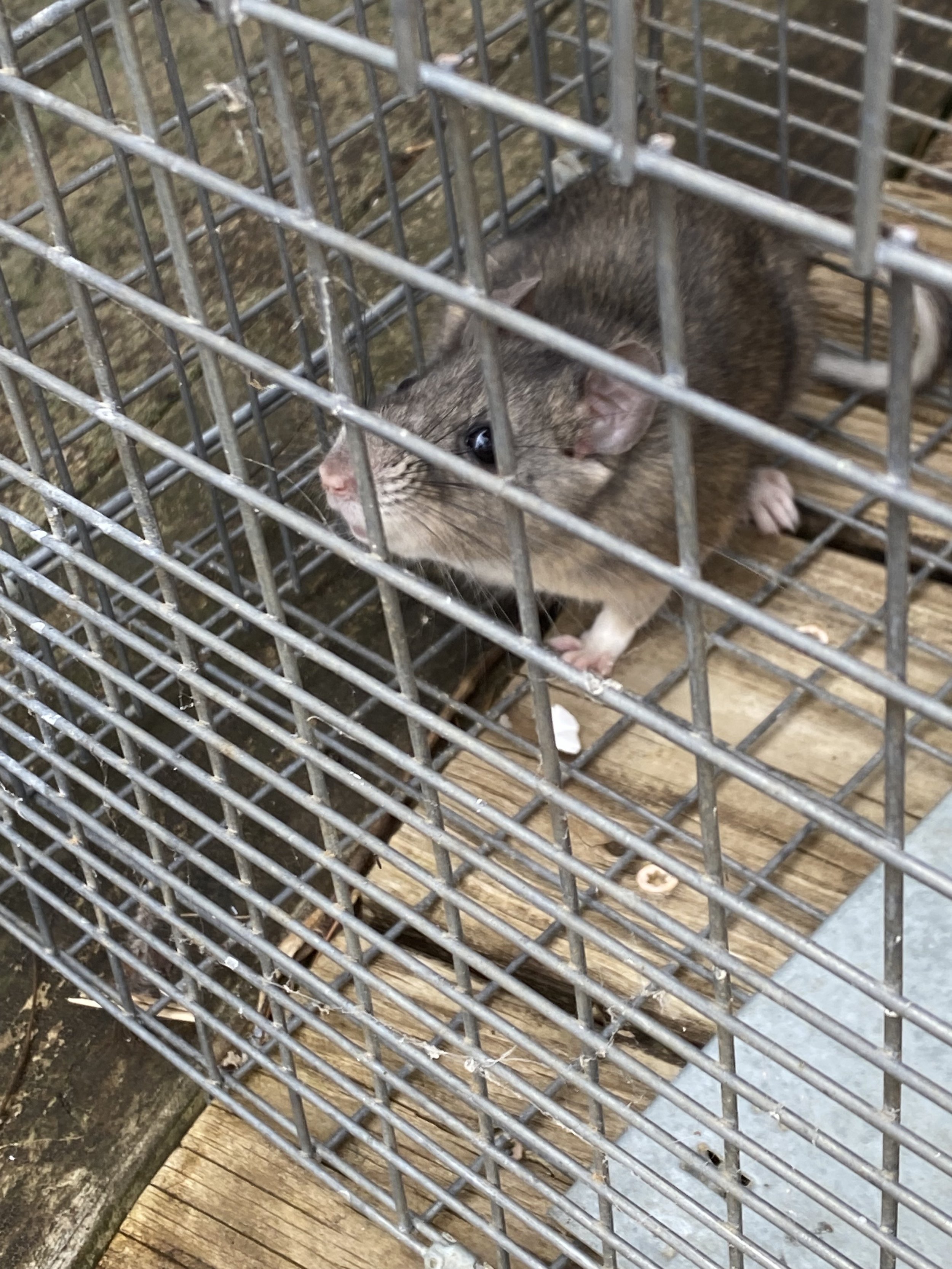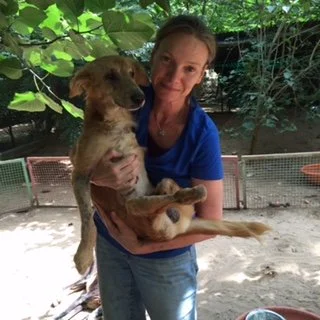The higher goal of all spiritual living is not to amass a wealth of information, but to face sacred moments.
--Abraham Heschel
I’ve never believed that humans were at the top of the evolutionary ladder. I mean, how could we be when we’re the only species that systematically destroys the earth that sustains us? Animals, plants and rocks seem so superior. Just as I’ll look upon a little ant roaming my kitchen and think that he probably isn’t aware of my existence, lost as he is in his immediate world, so different from mine, then might there be larger or different life forms who also look down upon me as I go about equally unaware? The point, I guess, is to think outside the box. To live outside the box. Because we can so easily get caught up in our small, limited worldviews—the seeing the table as solid sort of thing, when it is, in fact, a whirling mass of moving molecules.
It’s around this theme, that I’d like to offer a story. This past September, while I was eating and drinking my way through Provence, Jodie, a friend of mine, was spending her vacation volunteering at Animal Aid Unlimited in Udaipur, Rajasthan, India. You’d have thought this act of generosity, courage and selflessness would garner admiration from those with whom she worked, in the way it did from me. And yet, often she was met with mistrust at best and scorn at worst. Colleagues questioned the sanctuary and criticized her for spending time and money flying to India to help when there are plenty of animals in need in the U.S. To which I say, true, there are humans and animals who need help in our own country. But help is help, and I don’t think it matters where you volunteer your time or send your money if you feel moved to do so. What matters is that you do it.
In developing countries there is an intimacy with animals that doesn’t always exist in the U.S. It’s common to have bugs, reptiles and birds in the home. I’ve had a bird fly in through open windows and snatch part of the bread I was eating. In the U.S. we let in certain animals (dog and cats) and try to eradicate others (insects and rodents). There are people in developing countries who care about the plight of sick and wounded animals, but because one is also faced with many sick and wounded humans, people don’t know how to begin helping the animals. Few precedents have been set. They turn a blind eye and then that becomes the way it has always been.
Like Jodie, I too felt drawn to developing countries in my twenties and thirties, and traveled the globe with the desire to help “save the world.” Once, in Bangladesh, after the devastating cyclones of 1991 that killed many thousands of people and animals, I flew to that desperately poor country, seeking to connect with the Red Cross or other organization and put myself to use. While I was able to hand out fresh water, rice and bread, I didn’t save the world. I saved one goat. And, no different from my friend in India, was met with varying degrees of: Are you crazy or Are you stupid? Flying all the way to Bangladesh to save one goat? But, like the boy and the starfish story, to that goat, my time wasn’t wasted. To that one goat, it was everything. I have another friend who rushed off to Venezuela to help feed the animals, after hearing about the country’s economic crisis. So, whether Bangladesh, India, Syria, Venezuela, the U.S., or elsewhere, we help wherever we can. We help however we can.
And with this thought in mind, off Jodie flew to India, arriving some twenty-two hours later, an ordeal in itself not for the light-hearted. At the Animal Aid sanctuary, she sat with dying cows, wetting their lips with water and speaking softly into sacred ears. She worked with the paralyzed and legless dogs, who she reported were active and just as happy (if not more so) than dogs we encounter at home. If the videos she sent, and those from the website, are anything to go by, those dogs are 100 % bounding joy. I’ve seen this phenomenon before. Dogs in first world countries can become neurotic or depressed, taking on their guardians first world problems and anxieties, where dogs in the developing world are, in some ways, healthier. They may die at earlier ages from mange and diseases we see as easily preventable, but being allowed to be dogs, and outdoors, they’re happy, roaming the streets, doing what dogs love to do, not cooped up in apartments, lonely, with one hour outside. Even in some of our finest shelters, dogs are kept in separate runs, under conditions that would break the brightest of spirits. In India, the dogs were all outdoors and all together in one big, happy, rambling pack. My point is not to criticize the hardworking people in our shelters. They’re helping however they can. My point is to get us all to think outside the box, and see that maybe our way is not always the only way. And that animals on the streets (if spayed and neutered and given basic care) can also be happy animals. And that that might in fact be their choice.
And so along those lines, I come to the story that Jodie told me happened while she was there.
When not volunteering, she stayed in a guest house about a half hour away from the sanctuary. One night, well after midnight, she was awakened by the plaintive, mournful sound of a dog howling. It was not a woooh wooooh every so often and it was not a hello howl to the moon. It was instead, incessant and urgent. It was seemingly inconsolable and deeply troubling. My friend rose, and walked to the window, where, sure enough, there was a female dog lying in the road howling for all she was worth.
What to do now? One couldn’t just leave her down there in trouble, possibly in considerable pain. (One couldn’t sleep for one thing.) But the dogs who roamed the streets were not tame. These were feral dogs. She could be diseased. She could be injured, in which case she might attack and bite. Back and forth my friend waffled, trying to come up with the best answer for this dog in distress. And all the while she waffled, the dog in the street wailed, louder and louder, and more insistently with each howl.
Until she was answered.
Jodie stepped out onto the balcony and listened. Slowly, but steadily, as the dog in the street howled, she was answered…one by one…by distant voices. She howled and would receive an answer from a different quadrant. And then my friend watched, awed, as one after another, the pack members returned to what appeared to be the Alpha female, each one settling in by her side, and lying down. And after the last member of the pack was assembled, secure by her side, the female lay her head down, perfectly content now that her pack was all back together.
Jodie tried to explain the effect and the sense of family that the incidence had on her, but like most events that move us deeply, touching us at our cores, words can only paint on a one-dimensional canvas. The stories that are most meaningful are also those that often remain untold. Jodie could have played the hero and rushed up, in a display of ego, to “help” this female in distress. But some part of her intuition or wisdom caused her to pause, to not react. Instead she stood and watched. Instead she stood and listened to the particular music of an Indian night, but also to the great wisdom that resides within us all. And her reward was the miraculous and heartwarming event she witnessed. Or what to lowly humans can seem miraculous, when to the rest of the animal kingdom, it’s just how things are. A great interconnectedness, and mutual respect for one another. Here, the animals are our wise teachers, if we only just stop and listen to them.
The dogs may be deformed and broken but the sanctuary overflows with love and compassion.
Jodie and Deepok.
To find out more about Animal Aid Unlimited or to make a donation: www.animalaidunlimited.org.










